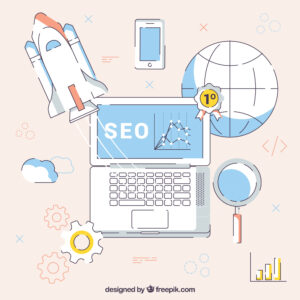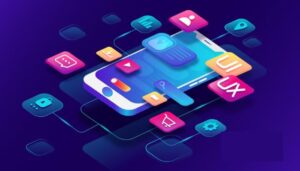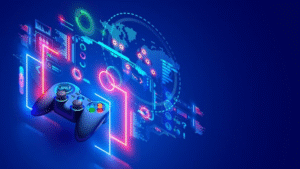Introduction: The Healthcare Revolution No One Can Ignore
Healthcare has always been about innovation—whether it’s groundbreaking medical research, life-saving treatments, or cutting-edge surgical procedures. But in today’s fast-evolving digital era, technology itself is becoming a healthcare provider.
Enter AI-powered custom software and mobile apps—the next frontier in modern healthcare. From faster diagnoses to personalized patient care, artificial intelligence is reshaping the industry in ways we couldn’t have imagined a decade ago.
The real question now isn’t whether AI will change healthcare—it’s how businesses and medical institutions can adapt to this inevitable transformation.
Let’s break down exactly how custom AI-driven technology is revolutionizing healthcare and why providers, patients, and businesses need to embrace it now.
The Challenges in Healthcare That AI is Solving
Despite incredible advancements, healthcare is far from perfect. Long patient wait times, administrative bottlenecks, inefficient data management, and rising costs have plagued the industry for years.
Here’s where AI-driven custom software and mobile apps come into play—solving problems that have long been considered unsolvable.
1. Inefficiencies in Patient Diagnosis & Treatment
Misdiagnosis and delayed treatment are some of the biggest pain points in healthcare. AI-powered applications can analyze medical records, symptoms, and imaging scans faster and more accurately than human doctors—leading to quicker and more precise diagnoses.
2. Overloaded Healthcare Systems
Doctors and nurses are often overwhelmed with administrative tasks, patient queries, and record-keeping. AI-powered custom software can automate:
-
Appointment scheduling
-
Prescription refills
-
Medical documentation
-
Billing & insurance claims processing
This not only reduces burden on healthcare staff but also improves patient satisfaction.
3. Poor Patient Engagement & Follow-Ups
Many patients fail to follow through on treatments due to lack of engagement. AI-based mobile apps can offer:
📱 Personalized health reminders for medications and follow-ups
📱 AI chatbots for instant medical guidance
📱 Real-time tracking of symptoms
This keeps patients engaged, informed, and on track with their health goals.
The Game-Changer: AI-Powered Custom Healthcare Software
1. AI-Driven Diagnostics & Predictive Healthcare
AI is now being used to analyze medical images, pathology reports, and genetic data—detecting diseases like cancer, Alzheimer’s, and cardiovascular conditions at an early stage.
🔬 Example: AI models trained on millions of mammograms can detect breast cancer earlier than traditional screenings, leading to higher survival rates.
AI also enables predictive analytics—helping doctors anticipate potential health risks based on a patient’s medical history and lifestyle data.
2. Telemedicine & Virtual Health Assistants
During the COVID-19 pandemic, telemedicine became a lifeline—but now, it’s a necessity. AI-powered telemedicine apps allow doctors to:
🩺 Diagnose conditions via video consultations
🩺 Analyze patient symptoms using AI algorithms
🩺 Offer instant e-prescriptions
AI-driven virtual assistants can also answer basic health queries 24/7, reducing the need for unnecessary hospital visits.
3. Smart Wearables & AI-Powered Health Monitoring
AI isn’t just in hospitals—it’s on our wrists. Smartwatches and health bands use AI to:
⌚ Monitor heart rate & blood pressure
⌚ Detect abnormal heart rhythms (like atrial fibrillation)
⌚ Track oxygen levels & sleep patterns
These real-time insights help both patients and doctors monitor chronic conditions before they become serious.
4. AI in Drug Discovery & Personalized Medicine
Developing new drugs can take years—but AI is cutting that time significantly. Machine learning algorithms analyze thousands of drug compounds to identify potential treatments faster than human researchers.
AI is also making medicine more personalized. Instead of a one-size-fits-all approach, AI-powered software analyzes an individual’s DNA, lifestyle, and medical history to recommend customized treatments.
The Role of AI-Powered Mobile Apps in Healthcare
AI isn’t just revolutionizing hospitals and clinics—it’s also transforming healthcare at our fingertips through mobile apps.
1. AI Chatbots for Instant Medical Advice
Instead of waiting days for a doctor’s appointment, patients can now chat with an AI-powered medical assistant to:
💡 Describe symptoms & get preliminary advice
💡 Receive reminders for medications & doctor visits
💡 Get answers to common health-related questions
These chatbots can handle millions of queries in seconds, reducing the workload on human doctors.
2. AI-Powered Mental Health Apps
Mental health is finally being taken seriously, and AI-powered apps are stepping in to offer:
🧘♂️ AI-driven mood tracking
🧘♀️ Cognitive behavioral therapy (CBT) exercises
🧘 Virtual therapy sessions with licensed professionals
These apps help users manage anxiety, depression, and stress—without needing an in-person visit.
3. AI-Powered Symptom Checker Apps
Gone are the days of self-diagnosing on Google. AI-based symptom checkers provide accurate, personalized health assessments based on a user’s symptoms and medical history.
These apps don’t replace doctors—but they help users make informed decisions about seeking medical help.
Why Custom AI Software is the Future of Healthcare
AI-powered custom software is not just a passing trend—it’s the foundation of future healthcare systems.
Here’s why hospitals, clinics, and healthcare startups are investing heavily in AI-driven solutions:
1. Seamless Integration with Existing Healthcare Systems
Custom AI-powered software can be integrated with:
✅ Electronic Health Records (EHRs)
✅ Hospital management systems
✅ Medical imaging tools (MRI, CT scans, X-rays)
This creates a connected ecosystem that improves data accuracy and accessibility.
2. Enhanced Security & Compliance
Healthcare data is extremely sensitive, and AI-driven software ensures:
🔒 HIPAA compliance for secure patient data management
🔒 AI-based fraud detection for insurance claims
🔒 Encrypted cloud storage to prevent data breaches
3. Faster and More Cost-Effective Healthcare Solutions
By reducing manual labor, administrative tasks, and diagnostic errors, AI-driven healthcare software:
💰 Lowers healthcare costs for both patients & providers
⏳ Speeds up treatment processes
📈 Improves overall healthcare accessibility
The Role of Tech Companies in Building AI-Driven Healthcare Solutions
To develop AI-powered custom healthcare software and mobile apps, companies are partnering with specialized developers like a software development company California.
These experts create custom-built AI healthcare solutions that cater to:
🩺 Hospitals & clinics
💊 Pharmaceutical companies
📲 Telehealth startups
🏥 Medical research organizations
The right AI-powered software can revolutionize healthcare operations, ensuring efficiency, accuracy, and better patient outcomes.
Conclusion: AI & Healthcare—A Partnership That’s Here to Stay
AI-powered custom software and mobile apps are not just improving healthcare—they’re reshaping it entirely.
From automating diagnoses to enhancing patient experiences, AI is the future of medicine.
As the demand for AI-driven healthcare solutions grows, businesses looking to develop innovative digital health products should consider mobile app development services in Atlanta to create cutting-edge solutions that will define the future of healthcare.







